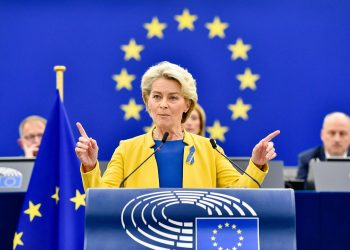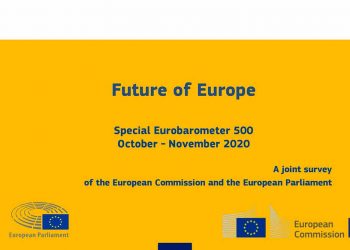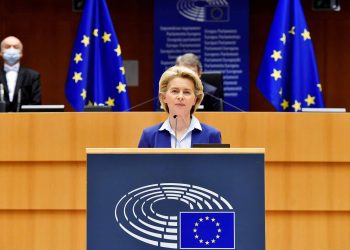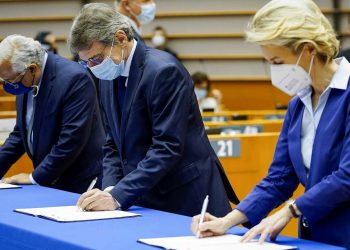The European Parliamentary Week 2021 consists of the European Semester Conference and the Interparliamentary Conference on Stability, Economic Coordination and Governance in the European Union. This year European Parliamentary Week edition is dominated by the impact of the COVID-19 crisis on EU economies and its recovery. The parliamentarians debate on the preparations of national recovery and resilience plans as well as investing in climate, social and economic priorities.
European Parliamentary Week 2021
For the first time since its inception in 2012, the European Parliament, together with the Portuguese Parliament, organise remotely the European Parliamentary Week 2021. The European Parliamentary Week brings together Parliamentarians from the European Union, candidate and observer countries to discuss economic, budgetary, environmental and social matters.
Grants and loans: What the Recovery EU money will be invested in?
Ursula von der Leyen, President of the European Commission, participates in the European Semester Conference. It is a global Inter-parliamentary Conference on Stability, Economic Coordination and Governance in the EU. The global online debate is co-organised by the European Parliament and the Portuguese Parliament.
The European Semester Conference provides an opportunity to exchange information on best practices in implementing the Semester cycles, and to strengthen cooperation in order to scrutinise the actions of the executives at national and European levels within the framework of the European Semester.
The Interparliamentary Conference on Stability, Economic Coordination and Governance in the European Union [Article 13 Conference of the Treaty on Stability, Coordination and Governance in the Economic and Monetary Union (Fiscal Compact)] provides a framework for debate and exchange of information and best practices in implementing the provisions of the Treaty and aims to strengthen cooperation between national Parliaments and the European Parliament. The Conference also contributes to ensuring democratic accountability in the area of economic governance and budgetary policy in the EU, particularly in the European Monetary Union. It takes into account the social dimension and without prejudice to the competences of national Parliaments and the European Parliament.














